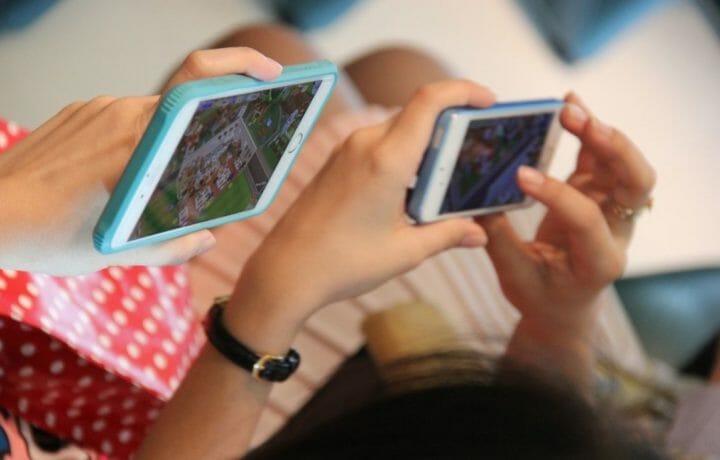Parents across the United States may limit the “screen time” that their children spend on computers and mobile devices using social media and playing video games, but now a Chinese firm is taking it a step further. After testing its “Midnight Patrol” system in 2018, the facial recognition software has been officially rolled out to 60 Tencent games this month, and will eventually expand to all of its gaming releases.
Tencent, which is China’s largest video game publisher, is utilizing its Midnight Patrol software as a way to comply with Beijing’s rule that limits minors’ access to video games. Gamers will have to have their faces scanned while they sit at their computer, and it is matched to a registered profile that includes their real name and age. If the person is a minor, there is a hard limit set on how long they can play. Moreover, in all affected games, gameplay that occurs within China’s official gaming curfew hours – 10pm to 8am – may be interrupted with an announcement that they can play the next day.
All of this is said to address the strict rules around gaming that the Chinese government introduced in 2019 as part of a move to “save children’s eyesight.” Screen time for gaming will be limited to 90 minutes per week day and 180 minutes on the weekend and holidays.
China Limiting Game Time
This is really more than just a game publisher’s rules. This really is about the state’s rules to limit access to video games.
“The Midnight Patrol is the Chinese state enforcing its rules on how much children can play,” explained technology industry analyst Roger Entner of Recon Analytics.
“We have a different understanding in the West of where the line lies where the state interjects itself in child rearing,” Entner told ClearanceJobs. “In the U.S. and Europe, we might have systems like this in the form of parental controls, but it’s the parents who set the rules, not the state.”
Beyond the debate of parental responsibility for determining what is best for their children, there is the issue of whether it actually resolves a problem that may not exist.
“Regardless of the technology, some may question the logic behind the curfew hours in the first place,” explained Josh Crandall, principal analyst at Netpop Research. “There have been many times when I can’t sleep at night so I read an online newspaper, and then play a few rounds of a favorite game. These sessions help me relax and fall back to sleep.”
The People and the State
The adoption of such technology in China also is just another level of the state controlling its citizens. In this case it is done for the greater good, regardless of whether it actually does any good – but also whether it will be effective.
“China’s midnight patrol looks to be another phase in the cat and mouse chase between government surveillance technology and individual freedom,” Crandall told ClearanceJobs.
“When kids want to play online games, they will find a way to skirt the system,” he added. “Whether it is to wear a mask or point the camera at a picture of their parent’s face, there will be ways around the midnight patrol if a child wants to play badly enough.”
U.S. Measures
It is unlikely that game publishers in the United States would ever go to such lengths to limit screen time. In fact, game companies more often find ways to keep the players on their devices and in front of the screens.
“It is hard to imagine that something like this, a blunt instrument, would be used in the U.S.,” suggested Crandall. “As it stands, smartphone technology and online game platforms offer parental controls that seem to offer more control already. Parents, those closest to their children, are working their best to set healthy parameters for their kids. The government isn’t in a better position to dictate what’s best for all families.”
The Security Implications
Dictating what is best for families may not even be what the government in Beijing is most concerned with however, and the motives could be far more nefarious. Apps that require facial recognition could become increasingly common, and limiting screen time is an indirect way to gain compliance.
This could allow China and its communist party, which still maintains tight control on the nation, to build a database of faces that are then linked to computers and mobile devices. It isn’t just the games that could be monitored, but all online activity, which is then readily linked to an individual.
“Programs like the Chinese facial recognition initiative is uniquely suitable to not only catalog children with their real names but also for AI to exactly study how children age and how their facial features change over time,” added Entner. “With enough time and data, China can use one picture and age the facial construct and make their surveillance even more comprehensive.”




